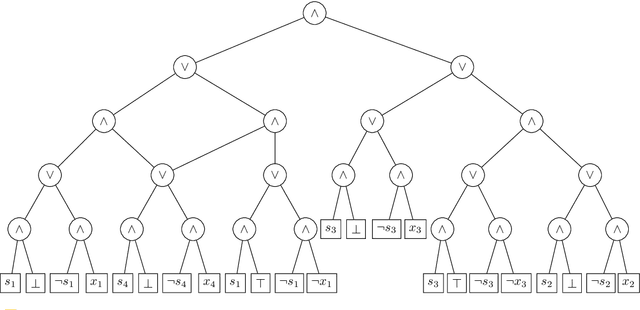Efficient Explanations for Knowledge Compilation Languages
Paper and Code
Jul 08, 2021



Knowledge compilation (KC) languages find a growing number of practical uses, including in Constraint Programming (CP) and in Machine Learning (ML). In most applications, one natural question is how to explain the decisions made by models represented by a KC language. This paper shows that for many of the best known KC languages, well-known classes of explanations can be computed in polynomial time. These classes include deterministic decomposable negation normal form (d-DNNF), and so any KC language that is strictly less succinct than d-DNNF. Furthermore, the paper also investigates the conditions under which polynomial time computation of explanations can be extended to KC languages more succinct than d-DNNF.
 Add to Chrome
Add to Chrome Add to Firefox
Add to Firefox Add to Edge
Add to Edge